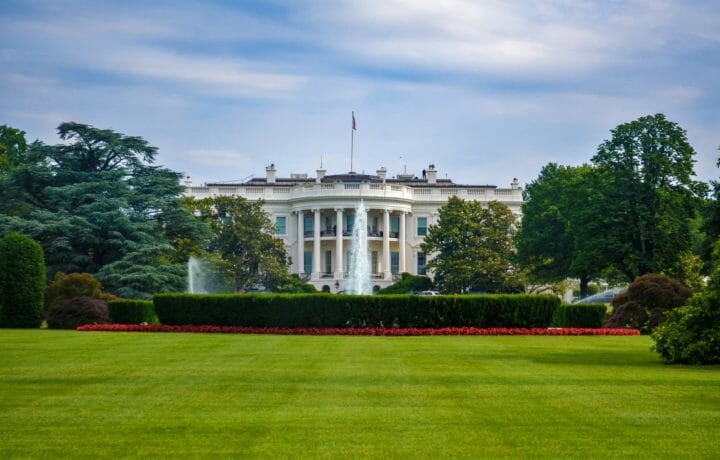After six months since taking office, President Joe Biden still has yet to appoint nominees to crucial positions within the federal government. The bipartisan Partnership for Public Service is currently tracking 800 government positions among the some 1,200 that require senate confirmation, and its recent tally found that eight are still awaiting formal nominations, while 237 positions have no Biden administration nominee. Currently, 206 are being considered by the senate, while just 127 have been confirmed by lawmakers.
Additionally, the nonprofit organization found that 222 appointees are serving in termed positions that were held over from the previous administration.
Given the sheer number of senate-confirmed positions, it is easy to see why more than six months into President Joe Biden’s term of office so many positions still need to be filled. The number of senate-confirmed positions has been steadily on the rise – increasing from 779 to 1,237 (59% increase) – between 1960 and 2016. This expansion has been consistent across the federal government’s agencies over that time.
As the Partnership For Public Service noted, “once created, these positions are hard to reform or eliminate.”
Longer Than Ever To Confirm Appointees
Because of the increase in the number of positions, the confirmation process is taking longer as well. The average senate confirmation process took twice as long during the Trump and Obama administrations – 117 and 112 days respectively – than it did during the Reagan administration, which was just 56 days. Additionally, during each of the George W. Bush and Obama administrations, Senate-confirmed nominees spent about 165,000 cumulative days (452 years) mired in the confirmation process.
It isn’t just the time spent confirming the nominees that remains a problem. As the Atlantic Council also laid out, the lack of people in the senior roles could undermine the government readiness to address emerging treats, while it also impedes progress on important issues. Partisan politics on Capitol Hill have played a role in the delays, but the current administration’s problems in filling key positions reach beyond the upper chamber of Congress. The White House Office of Presidential Personnel, which manages the vetting and appointments process, has continued to struggle to nominate candidates for many critical posts.
This isn’t for a lack of talent and connections with those ready and willing to serve.
The report from the Partnership for Public Service found that while Biden’s pace of confirmation is faster than that of former President Donald Trump, it is slower than Barrack Obama’s or George W. Bush’s, despite the decades of Washington contacts that Biden could draw upon.
Improving the Process
The bipartisan report suggested a number of potential approaches to streamline the political appointment process:
- Convert Senate-confirmed positions to nonconfirmed presidential appointments. Criteria for conversion may include role emphasis, influence, budget, personnel authority or oversight responsibility.
- Assign more Senate-confirmed positions to fixed-length terms. Today, roughly a third of Senate-confirmed positions have a specific term length. Fixed terms can reduce the turnover in key roles that demand long-term perspective or deep expertise, promoting continuity, and spread out the nomination and confirmation activities across a president’s term.
- Expand the holdover norm. Alternatively, to prevent gaps in priority positions, administrations could expand the norm of holding over critical officials until successors are confirmed in the short term, as is often done for U.S. marshals, or to maintain expert and less political appointees across administrations, as is traditionally done with inspectors general.
- Convert political appointments to nonpolitical career roles. Senate-confirmed positions at appropriate levels, demanding federal career expertise or benefitting from long-term continuity, could be converted to nonpolitical career roles.
- Convert select Senate-confirmed political appointments on commissions and boards to nonconfirmed roles or to agency-controlled appointments. Enabling largely part-time positions within ceremonial and advisory commissions to be appointed by Senate-confirmed agency leaders could reduce burden on the confirmation process.
- Eliminate redundant and consistently vacant appointments. Reduce the number of positions across the federal government. Positions with duplicate functions or chronic vacancies could be eliminated.
- Enhance the Senate’s “privileged” nomination process. In 2011, the Senate adopted a new procedure that allows a subset of nominations—so-called privileged nominations—to bypass committee procedures. These nominations, including many part-time positions for boards and commissions, still get caught up in lengthy floor procedures. The Senate should look for ways to improve the privileged process.
Truly Big Government
Even with such efforts to streamline the process, a debate remains on whether the sheer number of political appointees is in fact slowing down the federal government, and its ability to properly function.
“There are really two questions here. Does the fact of having to appoint and confirm so many officials make the government inefficient at its work, and do appointed officials somehow perform that work worse than non-appointed ones,” explained Matthew Schmidt, Ph.D., coordinator of international affairs at the Henry C. Lee College of Criminal Justice and Forensic Sciences at the University of New Haven.
“On the first it’s been clear for decades that the nature of the appointment process has hampered how well the government can work,” Schmidt told ClearanceJobs. “Many key appointments are now held up for years into an administration’s tenure. Agencies simply can’t be efficient without consistent leadership in place.”
Then there are the thousands of low-level appointees, which Schmidt noted can can include directors of commissions on pensions, war monuments, and the like.
“The reason many are appointed positions is because it gives bargaining chips to the parties, ‘We’ll appoint a Republican to head Battle Monuments if you quickly approve my deputy assistant for policy planning at Agriculture,'” and that kind of thing,” he added. “I don’t think they’re going away, they serve an important political function. But I also don’t think that most appointed officials are bad at their jobs. Truth be told, polling shows that a majority of Americans are generally satisfied with how well government works, and often when they’re not, it’s because they government isn’t involved enough in things like economic policy or infrastructure.”



